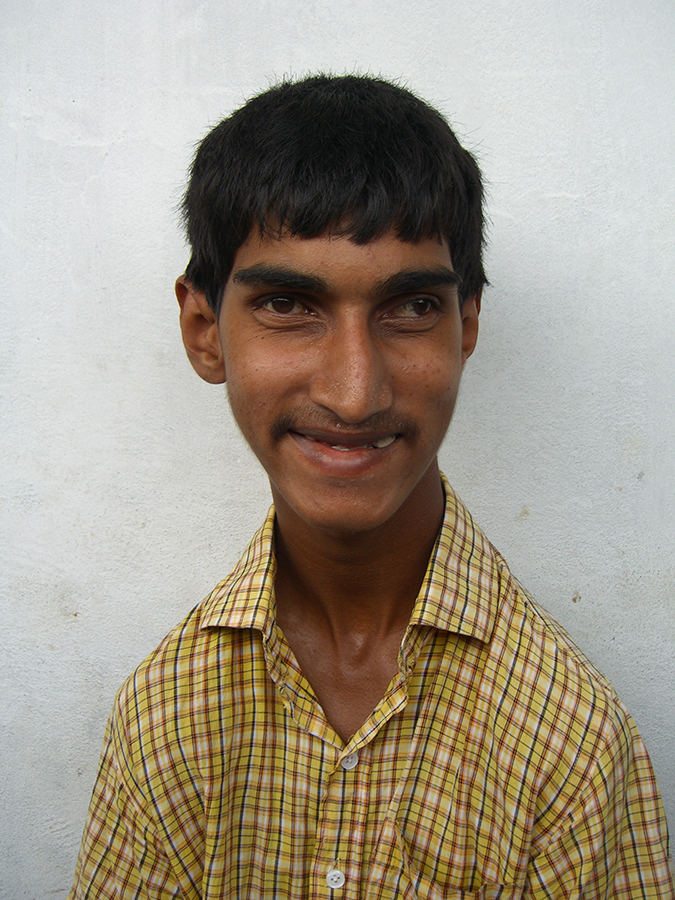Liton was amongst the first students at Sanjeevani. A withdrawn sixteen year old boy, he had Marfan’s Syndrome, a disorder that affects the connective tissue in many parts of the body, with unusually tall and thin limbs as its visible manifestation. Liton had heart problems, damaged organs, a compromised general health and also learning difficulties. Always bullied because of his appearance and a voice disorder, he tended to hide from people and hardly ever spoke. Liton had very loving parents who pleaded with Sanjeevani to give the boy a chance.
He was put in a group of older children and immediately took an interest in all the teaching aids and educational toys around him. Sanjeevani’s Montessori spirit allowed him his own pace and choices, gently coached by the special educators; first with puzzles and building games, later with group exercises, where he began to come out of his shell.
Liton did well at Sanjeevani. He made friends, hanging out together after school, he learned how to read and write and every day he insisted on singing the Bangladesh national anthem, chest puffed up with pride.
Liton had a peculiar obsession: the city of Sylhet in North Bangladesh. Every visitor at Sanjeevani was asked to enquire with Liton when he would go to Sylhet. An immediate ice-breaker, he would beam and squeak with excitement: “next week, by train!”. Until one day, when I as regular visitor asked that same routine question and a painful silence descended. Everybody looked at the floor. I was quickly ushered to a corner by head teacher Rabeya, where she whispered: “best to never mention Sylhet again. Liton went last weekend and he hated it. He’s devastated.”
The paradise of Liton’s dreams may not have existed in real life, but soon a dream did come true for his proud parents, when Liton had a lead role in a play on stage at a big conference about disability and poverty, organised in Dhaka by the Banyan Trust; full of confidence, funny and loving the applause, Liton showed to the world his remarkable transformation.
In 2014 the moment came that it was time for Liton to move on. He got a job helping out in a market stall, where he worked hard, even able to handle money. People liked being served by him, stopped to have a chat, everybody knew him. Liton finally belonged.
But his health did not get better. He had more and more trouble breathing and tired quickly. Doctors blamed Marfan’s Syndrome and explained that most probably his heart was elongating, stretched to capacity like an elastic. One evening Liton came home from work and complained he didn’t feel well. He went to bed early and never woke up.
In life Liton had arrived with such great disadvantages, but he left as a young man who had learned to find happiness in small things; a life truly worth living.



